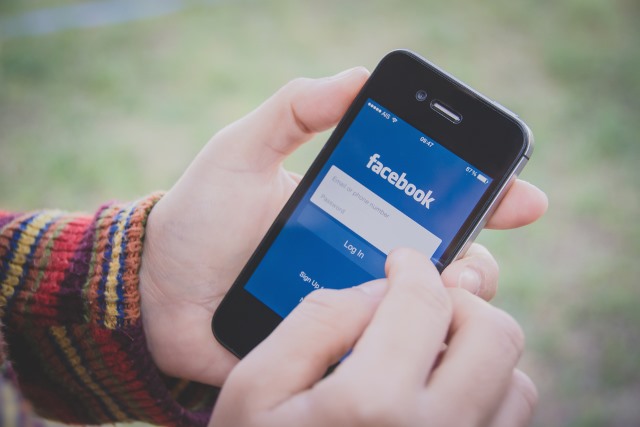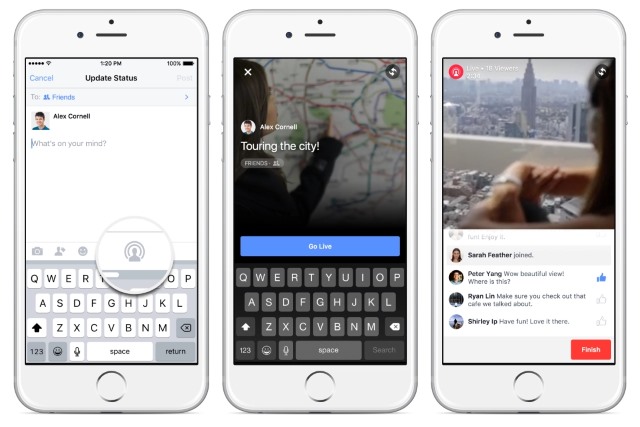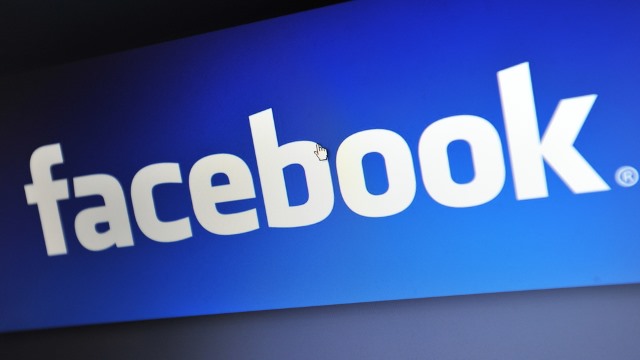
#RIPTwitter? What's with all the hoopla?
There have been changes aplenty at Twitter as the company fights to remain relevant in an increasingly crowded social marketplace. There have been rumors that the famous 140-character limit could be dropped, and we're already seeing Twitter dropping the requirement to be logged into an account in order to see conversations. Just like Facebook, Twitter has also experimented with changing the order in which content appears in users' timelines, and it seems like this is something that's due to spread to everyone.
The company could be on the verge of launching a new algorithm-powered timeline that displays tweets not in reverse chronological order, but based on what it thinks you might want to see. Before the change has even been implemented, there has already been something of a backlash, with many people suggesting this could be the death of Twitter. The hashtag #RIPTwitter quickly started trending and is home to vocal opposition to the change.

Here's how to unlock (and play) Facebook Messenger's secret game
Although there are lots of apps and services you can use for chatting to friends, Facebook Messenger is one of the better options because you can pretty much guarantee most people you know will have a Facebook account.
In addition to chatting with your friends you can now challenge them to play a game of chess, but only if you know the secret phrase to launch it, and the hotkeys used to pay the game.

Gmail and WhatsApp boast over one billion monthly active users each
There are many products that have hundreds of millions of active users in a single month, but there are few that have passed the billion mark. However, the select group, which includes the likes of YouTube and Facebook, has just gotten bigger.
And it is Google and Facebook which once again add new members to that list, with Gmail and WhatsApp, respectively, joining the pack. Both services passed that milestone in January, with one taking longer than the other to reach it.

Emotionally retarded? Facebook Likes soon to be bolstered by just 5 new 'reactions'
The 'liking' of online content goes hand in hand with using Facebook. It's a simple idea, and one that has been copied by the likes of Google, Twitter and countless other sites. But as great as the iconic Like button is, it's hugely limiting and insufficiently expressive. There was talk of Facebook introducing a Dislike button but this idea (if it ever existed) was canned in favor of 'reactions'. Facebook has been testing reactions for a while, and now the feature is on the verge of a global rollout.
Mark Zuckerberg said this week that the glorified emoji will spread to all users 'pretty soon', but while people will undoubtedly embrace the option to do something other than just 'like' friend's post (how appropriate it is to 'like' the status "My cat just died"?), reactions are still very limited. Users will be restricted to expressing just five emotions -- cut down from six as testers were apparently too stupid to understand a 'yay' emoji -- meaning that reactions will be almost as limiting and blunt as the humble Like button.

Facebook bans private gun sales -- no, that doesn't violate your 2nd Amendment rights
While many people view Second Amendment defenders as gun nuts, the truth is, that isn't always the case. A good example? Me. While I am a life member of the NRA, firearms don't really thrill me. No, I get my jollies from computers and technology. My interest in Second Amendment protection is mostly constitutional -- I don't want to see any of my fellow Americans' rights get trampled.
Today, Facebook announces that it is banning private gun sales on its site (and Instagram). Of course, some folks will see this as an attack on the Second Amendment, and maybe even the First Amendment. The truth of the matter is, neither your freedom of speech nor your right to bear arms are impacted by Facebook's decision. Why? Because the social network is not a public or government place. Facebook has the right to determine its own policies.

Facebook irks devs by shutting Parse mobile development platform
Facebook is closing down Parse, its mobile development platform, just three years after acquiring it for $85 million. The shutdown comes as something of a surprise as it is not long since Facebook was talking about using Parse to make giant steps into the Internet of Things.
But it seems that Facebook's IoT future is going to be one that is Parse-free. The shutdown will take place over the course of the next year, but starts with immediate effect. As of right now Parse is in wind-down mode, and will be fully shuttered by January 28, 2017. Believed to power tens of thousands of mobile apps, the killing of Parse will see Facebook diverting funds to other ventures.

Live video streaming spreads to all mobile Facebook users
Lights! Camera! Action! Facebook is home to pictures, videos, comments, news, train-of-thought ramblings, and much more. Until recently, videos have been limited to those that have been pre-recorded, but that's about to change.
Facebook recently opened up the ability to share a live video stream to a limited number of people, and the social network is about to expand this. Starting today, live video sharing is being made available to US iPhone users, and it won't be long before the feature is available globally, and also to Android users.

This is Bill. He is cluttering up Facebook. Be smart. Block Bill.
The first half dozen times I encountered the Bill meme on Facebook, I found it amusing. But after a while, the sanctimonious stick man -- who explains how people should use the web, among other things -- began to grate.
And then everyone started to make their own versions, using their own names. At that point, it was clear, enough was enough. If you feel the same, be like me, and block Bill, and all of the other variations by following these steps.

Don't open that Facebook email attachment -- it could be malware
Two weeks ago, the Comodo Threat Research Lab discovered a malware campaign aimed at businesses and consumers using the WhatsApp mobile messaging service. That attack used official looking emails masquerading as WhatsApp content.
Now Comodo’s researchers have identified a similar phishing campaign targeting Facebook users, which it believes was created by the same group behind the WhatsApp malware.

Tim Berners-Lee is an idiot for wanting to expose cyberbullies' identities
While there is greater interest than ever before in online privacy there are also calls from some quarters for people who use the web to be fully accountable. This is part of the thinking behind Facebook's real names policy, and it's also what's driven Tim Berners-Lee -- no less than the inventor of the web -- to call for the identities of cyberbullies to be exposed.
In the wake of gamergate and countless other examples of women being abused online for little more than being women, bullying of school children by their contemporaries, and endless racist, sexist, and politically motivated attacks online, the suggestion might seem -- on the face of it -- to make sense. But it fails to stand up to scrutiny and is likely -- ultimately, if anyone were insane enough to follow his advice -- to be completely counterproductive.

Facebook's Android app gains privacy-enhancing Tor support
Back towards the end of 2014, Facebook unveiled a new .onion address that allowed Tor users to visit the social network securely. Following on from this, the company is now giving Android users the ability to browse the site using Tor and the Facebook app.
Security, privacy and anonymity may be words readily associated with Tor, but few people would use them in the same sentence as Facebook. The social network says that there is increased demand for secure connections to Facebook from Tor-enabled browsers, hence spreading to the largest mobile platform. The news will make some mobile users happy, but there are currently no plans to migrate the feature from Android to iOS.

What you should consider before adopting Facebook at Work
The news that Facebook at Work is due to be rolled out in the first part of this year will be welcomed by many businesses, especially those keen to see more effective use of technology in the workplace and to see greater employee engagement through increased levels of connectivity. For employees used to managing their personal lives via social media and technology, the arrival may seem long overdue.
The work place version of Facebook will replicate many of the features of the well-known social version, giving employees and co-workers a range of ways in which to communicate, collaborate and interact. The increasing globalization of business and reliance on remote and flexible ways of working mean that keeping employees meaningfully connected is critical to driving business success. As an added side benefit, the introduction of more effective communication methods often leads to a reduction in the use of internal email systems. This in turn can help businesses manage IT capacity and reduce the need for employees to monitor unnecessary email traffic.

Google overtakes Facebook in advertising spend
A new report from marketing technology company IgnitionOne reveals the latest trends in digital advertising spend for the final quarter of 2015.
Among its key findings are that Google passed Facebook in growth and conversions, seeing an increase of 37 percent in programmatic display advertising spend and a 34 percent increase in conversions. In comparison, Facebook saw an increase of 22 percent in growth and 17 percent in conversions.

Tech firms ready to work with US spy agencies to combat IS and online terrorism
Silicon Valley met with the US government on Friday to discuss how to tackle online terrorist propaganda from the likes of IS. At a closed-door meeting, Tim Cook and representative of Facebook, Twitter, Microsoft and other tech firms spoke with White House officials to try to find a way to combat terrorists on the web.
Joined by the likes of the NSA and FBI, the technology firms, and the Obama administration are seeking ways to stop terrorist propaganda being disseminated online. IS has already proved itself to be a masterful manipulator of the media, and has successfully used social networks such as Facebook and Twitter to get its message out.

Facebook, Google, Microsoft, Twitter and Yahoo balk at UK's Investigatory Powers Bill
The Investigatory Powers Bill may only be in draft form at the moment, but the UK government has already come in for criticism for its plans. Today, scores of pieces of written evidence, both for and against the proposals, have been published, including input from the Reform Government Surveillance (RGS) coalition.
Five key members of the coalition are Facebook, Google, Microsoft, Twitter and Yahoo. In their written evidence, the quintet of tech companies express their concerns about the draft bill, seek clarification from the UK government, and issue warnings about the implications of such a bill.
